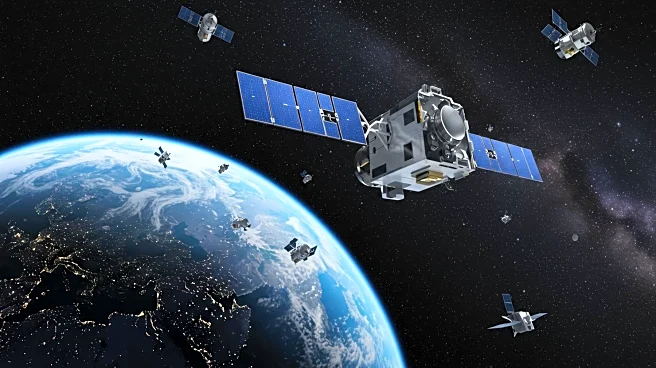What's Happening?
Russia is reportedly developing a nuclear, space-based weapon capable of disabling satellites in low-Earth orbit, posing a significant threat to global satellite security. This weapon, if deployed, could disrupt military operations, navigation systems, and economic supply chains by targeting satellite communications. The U.S. has declassified information about this weapon following warnings from Rep. Mike Turner, who has called for a classified briefing on the technology. The weapon's potential deployment would violate international treaties prohibiting weapons of mass destruction in space, and could render low-Earth orbit unusable for satellites for up to a year.
Why It's Important?
The development of space-based weapons by Russia highlights the growing militarization of space and the vulnerabilities of satellite infrastructure. Satellites play a critical role in national security, economic operations, and global communications, making them prime targets for adversaries. The potential deployment of such weapons could lead to significant geopolitical tensions and disrupt the balance of power in space. The U.S. and its allies face the risk of economic upheaval and compromised military readiness if satellite networks are disabled. This development underscores the need for robust cybersecurity measures and international cooperation to prevent the militarization of space.
What's Next?
The U.S. Space Force, established to protect American interests in space, is expected to play a key role in addressing these threats. The White House is anticipated to announce the location for its headquarters soon, with Colorado and Alabama as potential candidates. The U.S. military's unmanned space shuttle, the X-37B, continues to conduct classified missions to enhance space security. As nations race to secure their interests in space, the U.S. must take proactive steps to ensure its satellite infrastructure is protected from potential attacks.











